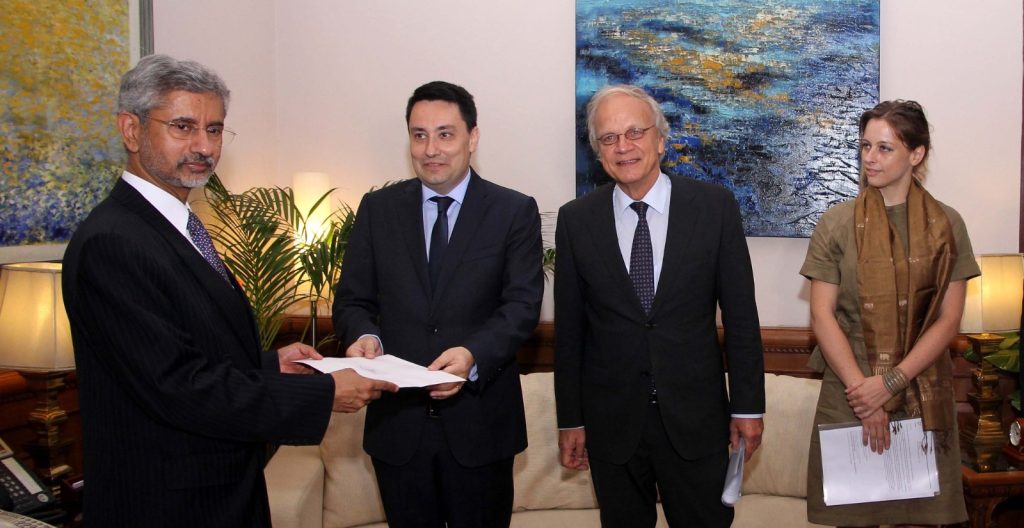The United States (US) has taken an incremental step to further liberalise its approval process for the export of satellites and satellite components. The earlier approval process for these exports centred on the ‘presumption of denial’ policy if these products were expected to be flown on a foreign launch vehicle that the US government discourages. The policy has now shifted to reviewing the license requests on a case-by-case basis, thus emphasising a merit-based approach towards encouraging the US space industry.
India’s Polar Satellite Launch Vehicle (PSLV) is a foreign launch vehicle not encouraged by the US authorities. Despite being granted waivers to the satellite developers, particularly the small satellite companies, the application process for a waiver has increased the compliance burden and instilled unpredictability in executing business plans.
Moreover, the waiver is a one-time approval, meaning a company must reapply for a waiver even if its satellites were launched on the PSLV before. Such waivers were granted before some of the notable PSLV launches, such as the C37 mission that orbited 96 co-passenger satellites belonging to the US.
The US believes that the Indian government is subsidising the launch cost of the PSLV to appear competitive in the international launch vehicle market, particularly in comparison to the US launch vehicles. The US had signed commercial space launch agreements with Russia, China and Ukraine to ensure the launch prices offered by these countries do not vary substantially from the American launch costs.
However, despite multiple negotiations, India and the US have yet to sign such an agreement. Media interview of unnamed PSLV customers has revealed that the US government intends to audit the Indian Space Research Organisation (ISRO) in this process, a proposition the Indian government may not accept.
However, waivers are regularly granted for US companies and foreign manufacturers using American components in their satellites. The waiver process was established during the culminating years of the Cold War. This era significantly influenced the American perspective of satellites, satellite components and launch vehicles.
Accordingly, the authority to issue export permits had oscillated between the Departments of Commerce (trade perspective) and the State (security perspective). The White House and the US Congress also interjected this debate by imposing export restrictions through domestic laws. The restrictions were tempered by the waiver authority granted to the US President to uphold the American economic and security interests in specific situations. For example, President Bush Sr. restricted the export of satellite components to China but allowed the launch of two satellites onboard the latter’s launch vehicles considering the peaceful nature of these projects.
However, the Cox Commission in the late 1990s had concluded that investigations into the failure of Chinese launch vehicles carrying American satellites had inadvertently transferred technical know-how, potentially leading China to improve its ballistic missile designs. The MTCR regime also sanctioned ISRO in the early 1990s for importing cryogenic engine technology from Russia, a technology the US believed would improve India’s missile development programme.
These developments led to the drafting of the Strom Thurmond National Defence Authorization Act for the fiscal year 1999. This Act (Section 1513) transferred the satellites and related items from the Commerce Control List to the Munitions List, resulting in tightened export controls.
These restrictions were relaxed, however, by the recent US administrations considering the emergence of small satellite businesses that require a higher launch cadence of low-cost launch vehicles. The marketing of the supposedly ITAR-free satellites (International Traffic in Arms Regulations) and China steadily capturing the communications satellite launch market in the Global South have also triggered a review of the US policy. Subsequently, the Obama Administration removed the ITAR restrictions on satellites and satellite components by relisting them under the Commerce Control List through the National Defence Authorization Act for Fiscal Year 2013.
A reinterpretation of the provisions of the MTCR has spurred the recent policy change by the US. India already became a full member of the MTCR in 2016, strengthening the case for a positive appraisal during the PSLV waiver process. Moreover, India has restructured its space programme with separate entities responsible for research and development (ISRO), building and launching satellites (NSIL) and promoting the space industry (IN-SPACe). Private industry participation is expected to level up from suppliers to the government to execute the complete launch process.
In September 2022, the industry consortium of Larsen & Toubro (L&T) and Hindustan Aeronautics Limited (HAL) was awarded a contract for producing five PSLV rockets. The Small Satellite Launch Vehicle (SSLV), designed for meeting small satellite business requirements, is also expected to be produced by the industry. These reforms should enable India’s launch vehicles to be marketed and treated fairly in the free-market competition. India has also approved the Space Policy 2023 to consolidate the reforms implemented and further enhance industry participation.
Space cooperation has been a significant foundation for building the overarching India-US strategic relations. Industrial and commercial cooperation would add value to this domain, particularly considering the Ukraine War. Recently, OneWeb, a satellite broadband company, has shifted two of its missions to India’s GSLV Mk III launch vehicle following the cancellation of the contract with Russia’s Soyuz launch vehicle. A synchronised launch manifest, without prejudice to the US or India’s interests, could be a worthwhile project considering the burgeoning competition for launching Low Earth Orbit constellations.
Vidya Sagar Reddy holds a Master’s degree in Geopolitical and International Relations from the Manipal University. Previously, he was an Associate Fellow at the Observer Research Foundation, New Delhi.





